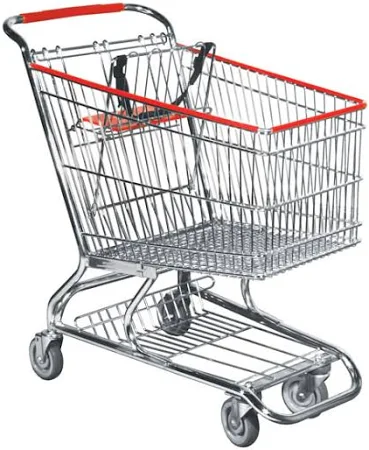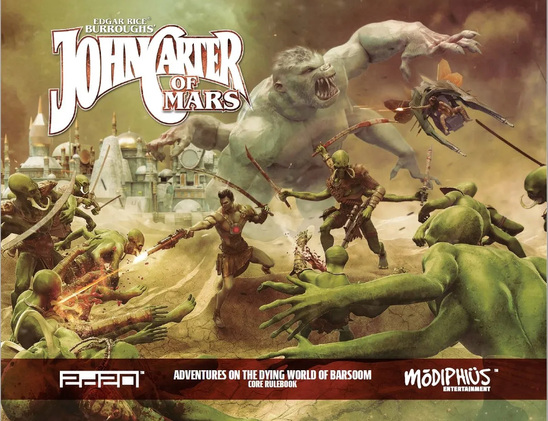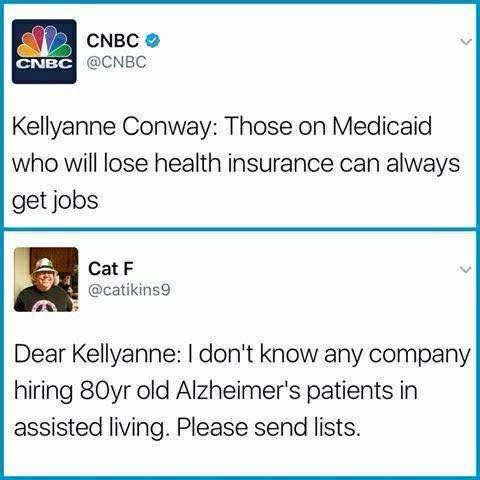Made a rare trip to Wal-Mart today (mostly to get some distracted indoor walking in, as walking outside upsets my allergies) and encountered an Asian couple walking in front of me with an older woman I presumed to be the mother of one of them. The older woman was pushing the cart, and started to go the wrong way, then seemed confused and froze. I immediately recognized signs of dementia or mental decline.
They were blocking my way, and I was in no hurry at all, so I stopped and waited patiently.
The younger woman calmly instructed the older woman and indicated the aisle they needed to walk down. But then the younger woman noticed me and looked uncomfortable. I smiled and nodded. "No hurry."
The older woman slowly backed up and turned the cart, but then stopped again, still uncertain. This time the younger woman looked embarrassed and apologized to me. I smiled, nodded, and gave her a thumbs up. (I don't know if they were locals or recent immigrants or tourists, so I hope my message of positivity didn't get lost in some cultural divide).
The younger woman urged the elder along as the man beckoned from in front. I waited till they were clearly away before continuing.
I'm making a lot of assumptions here, but what they were doing seemed great to me. They were keeping mom active, engaged, part of family activities, and taking her out into the world as much as they could. They weren't treating her like an invalid or a child. They treated her with dignity, though I know it all can be hard.
I've seen dementia up close twice in my family. First my father-in-law, and more recently, my own dad. Both are now deceased, and it was horrific. But it wasn't immediate, and I know there can often be many good days left before the worst.
My mom was caretaker for my dad, but suffers mental health issues and was and remains a complete shut-in. My brother lived nearby, and did great taking care of things for them, spending time with dad, and taking him places early on. He always took dad on his weekly shopping trips and often on other outings. Dad was happy then.
I live literally across the country (Oregon, and they are in Alabama), but I went back for an extended visit, and he, my brother, and I took an long road trip to Florida, spending days at the NASA space center, and even got to watch a Falcon 9 moon launch (the failed Beresheet lander). Dad loved it, and we all had a great time.
But after I turned home, Covid hit. Dad lost access to all the places he liked to go (especially aircraft museums, as he had worked in aviation most of his life) and stimulated good memories.
His social world came down to my mom and brother. I was stuck far away, couldn't visit, and couldn't help.
I'm convinced it greatly accelerated my father's mental and physical decline. I managed to get back one more time during covid, driving coast to coast while in lockdown (and adventure, and not the good kind) for a month. I tried to improve my parent's situation any way I could, but my family, especially my mother, roadblocked everything, and I had to accept there was nothing I could do. I returned home defeated, but somehow liberated.
But after that, dad's decline continued. He mostly shut down. He couldn't walk go to the bathroom without help. But part of him was there. On his last day in the hospital, while I was talking by phone to my brother who was with him, he asked it is was me. My brother held the phone for him. He struggled for words and thoughts, but knew who I was, and then uttered the words he had rarely said to me before. "I love you."
He passed just after this. I couldn't have asked for better last words. But I know we could have had more. HE could have had more. Covid cheated him of this, and it's tragic.
So, I feel for that couple in the store, but I celebrate them for keeping mom in their life, and keeping her in the world as much as they can. I hope that's what was happening anyway. Maybe I'm just projecting, but I hope not. I wish them well with all my heart.
#alzheimer #alzheimers #dementia #age #eldercare #chanceencountes #grief #caretakers
They were blocking my way, and I was in no hurry at all, so I stopped and waited patiently.
The younger woman calmly instructed the older woman and indicated the aisle they needed to walk down. But then the younger woman noticed me and looked uncomfortable. I smiled and nodded. "No hurry."
The older woman slowly backed up and turned the cart, but then stopped again, still uncertain. This time the younger woman looked embarrassed and apologized to me. I smiled, nodded, and gave her a thumbs up. (I don't know if they were locals or recent immigrants or tourists, so I hope my message of positivity didn't get lost in some cultural divide).
The younger woman urged the elder along as the man beckoned from in front. I waited till they were clearly away before continuing.
I'm making a lot of assumptions here, but what they were doing seemed great to me. They were keeping mom active, engaged, part of family activities, and taking her out into the world as much as they could. They weren't treating her like an invalid or a child. They treated her with dignity, though I know it all can be hard.
I've seen dementia up close twice in my family. First my father-in-law, and more recently, my own dad. Both are now deceased, and it was horrific. But it wasn't immediate, and I know there can often be many good days left before the worst.
My mom was caretaker for my dad, but suffers mental health issues and was and remains a complete shut-in. My brother lived nearby, and did great taking care of things for them, spending time with dad, and taking him places early on. He always took dad on his weekly shopping trips and often on other outings. Dad was happy then.
I live literally across the country (Oregon, and they are in Alabama), but I went back for an extended visit, and he, my brother, and I took an long road trip to Florida, spending days at the NASA space center, and even got to watch a Falcon 9 moon launch (the failed Beresheet lander). Dad loved it, and we all had a great time.
But after I turned home, Covid hit. Dad lost access to all the places he liked to go (especially aircraft museums, as he had worked in aviation most of his life) and stimulated good memories.
His social world came down to my mom and brother. I was stuck far away, couldn't visit, and couldn't help.
I'm convinced it greatly accelerated my father's mental and physical decline. I managed to get back one more time during covid, driving coast to coast while in lockdown (and adventure, and not the good kind) for a month. I tried to improve my parent's situation any way I could, but my family, especially my mother, roadblocked everything, and I had to accept there was nothing I could do. I returned home defeated, but somehow liberated.
But after that, dad's decline continued. He mostly shut down. He couldn't walk go to the bathroom without help. But part of him was there. On his last day in the hospital, while I was talking by phone to my brother who was with him, he asked it is was me. My brother held the phone for him. He struggled for words and thoughts, but knew who I was, and then uttered the words he had rarely said to me before. "I love you."
He passed just after this. I couldn't have asked for better last words. But I know we could have had more. HE could have had more. Covid cheated him of this, and it's tragic.
So, I feel for that couple in the store, but I celebrate them for keeping mom in their life, and keeping her in the world as much as they can. I hope that's what was happening anyway. Maybe I'm just projecting, but I hope not. I wish them well with all my heart.
#alzheimer #alzheimers #dementia #age #eldercare #chanceencountes #grief #caretakers


